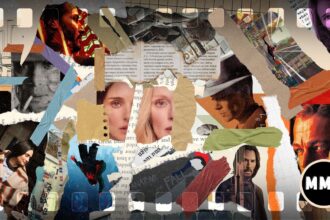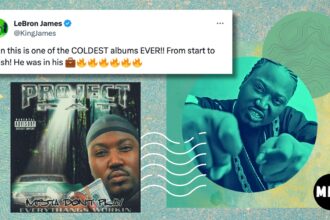“You haven’t seen Breaking Bad??”
I remember my friend’s incredulity like it was yesterday. In fact, it was probably eight years ago. I’m sure I had an incredibly compelling argument ready at a moment’s notice. That’s the type of thing one does when they know they could be pop culture shunned at any time.
I was tired of rooting for bad people. I was tired of making space for violence and drug trafficking, for harassment and Machiavellian justification. I wanted my protagonists to be heroes. I wanted to watch good people strive to be better, even in the face of overwhelming odds. That was what I needed from my narratives. I did not like antiheroes.
It took a deep dive into the intricacies of the antihero character type in the intervening years in order to understand where I was coming from and also where I was wrong to be so dismissive.
The popularity of the antihero has always existed, see Heracles, yet seems to have exploded in the last twenty years. The golden age of television, ushered in by Tony Soprano, Don Draper, Walter White, and Frank Underwood, all saw to that. These were men who repeatedly did bad things that hurt other people, and yet we rooted for them to succeed. In the case of Underwood, he was portrayed by a real live villain.
Perhaps I need to define “antihero” since I know there may be many interpretations out there: A hero trying to do good, but can’t shake a haunted past. Someone who uses violence and intimidation to achieve a morally just result. A “bad guy” who we happen to root for. Someone who lives by their own code and that may mean they bend the rules. Anyone in a leather jacket. All of these things fall under the antihero category.
The examples are equally as varied. The three men I mentioned above ushered in a modern era, but there were others that came before. Many members of the Corleone family. Both Charles Bronson and Bruce Willis in Death Wish movies. Tony Montana. Han Solo—although he softened over the years, he did shoot first.
Comic books and comic book movies are riddled with the archetype. Marvel alone has films and TV shows based around characters like Wolverine, Deadpool, and The Punisher. Sony adds to that with the Venom series. Venom in particular was created as a villain, but once the public begins to view a character as a badass, the shift to hero-who-still-eats-people is inevitable. Professional wrestling has dealt with that for the last 30 years with heels becoming popular until they become essentially faces. Those are fancy wrestling insider terms.
This list sure does contain a lot of white men, huh. More on that later. There are a few women who fall under similar definitions. Claire Underwood and Cersei Lannister are two that come quickly to mind.
So younger Cody was not a big fan of the character type. Did he watch every single one of those listed? Yes. Even Breaking Bad? OK, not all of it, but it was such an investment. I was tired of watching people operate in the gray fog of morality that hangs heavy between good and evil.
My favorite TV show is The West Wing. Maybe that is all I needed to say.
Antiheroes generally have redeeming qualities or at the very least, adequate excuses for causing suffering to others. Maybe it’s that haunted past. Maybe the victims of their actions are even worse people and thus “deserving.” I tend to think that there are better alternatives. I was raised in a largely Quaker environment, which means that the belief in nonviolence is woven into my veins.
I also happen to be white. I have benefited from white-created systems and rules all my life. Quakerism might be the whitest of all religions. In many ways, the concept of being a “lawful member of society” is a white notion since those laws were created to maintain systems to oppress anyone who isn’t a white man. Not all people can and should abide by every rule. I am not proposing anarchy, but I’m not not proposing anarchy. My point is that this is a great space—the particular symbology of the antihero. Justice can take many forms and it is not always one that is palatable to “authorities.” It took me a long time to realize that.
I believe that the public appeal of antiheroes stems from the way they hold a mirror up to our own actions. We know that we ourselves are not inherently good, so perhaps there is comfort in seeing that play out on screen with fictional characters. There can be a disconnect when watching someone truly good struggle to swim upstream in a world of corruption. It is something to aspire to, yet not exactly realistic. Most of us are more acquainted with dancing along that line while being pulled in multiple directions. We judge the antihero less than the truly good because we know that the latter’s standard is nearly impossible to live up to. Just ask anyone trying to write a Superman story.
That being said, I do worry about the justifications the glorification of antiheroes inspires in others. I was struck by a certain idea several years ago when spending far too much time dissecting the motivations of a certain political figure. You know who thinks they’re an antihero? Donald Trump.
According to him, everyone says he’s the political outsider who does what is right, regardless of “rules” and “regulations” or “human decency.” His abuses of power were not far off from the active violence of Tony Sopranos of fiction. I would imagine that both bullies saw those actions as necessary. By having lauded examples to point to, I believe it emboldens people like Trump.
Similarly, I could imagine that the anti-vax population also see themselves as fighting for their own brand of justice instead of trying to kill my unvaccinatable three-year-old. By raising up the morally ambiguous, it perhaps opens doors we would prefer to leave closed. The most obvious example is that the damn Proud Boys co-opted the Punisher logo.
I believe those examples are why—deep down in my soul—I still prefer the stories of the pure of heart, trying to make a difference. I must maintain a critical eye when digesting those stories in order to guard against white supremacy propaganda. Hence my thesis about a nuanced approach.
I believe that recognizing the power and popularity of the archetype is important. Recognizing the pitfalls can be equally so. I know that my naivete to write off such stories was not the right path to take.
With my arguments properly laid out, now I can properly say…I thought The Suicide Squad was good. Definitely check out Teresa’s review of the movie for MMH. I liked it. They do a purposeful and 64% effective job of providing justification for the character’s transgressions. As I was watching it last week, I was reminded of my history with the character type and felt inspired to explore it. I have had faulty impressions in the past, but I recognize it can be a challenging discussion.
How do you feel about antiheroes? I would love to engage in the comments.










Great job writing and interesting perspective. West Wing was my favorite also. It’s so nice when the good guys win. And so rare.
Very interesting…..something I think I’ve pondered lightly in the fringes of my mind. I have always just “let it happen” when I’m watching shows like “Breaking Bad”. But that only took place after frequent urging from my son to give up my shallow moral stance that I couldn’t watch a series where there were no “good guys”. I’m more concerned today about the Vampire killing shows and the reliance on violence, mostly extreme in the superhero movies that are out. My objectio to those isn’t really a moral stance—it’s more that I woud rather watch films and shows that have at list a toe in the waters of reality. How many times can you watch superheroes predictably “winning” while performing feats using powers that will never grace a real human being….My 2 Cents but thanks for the poke Cody.